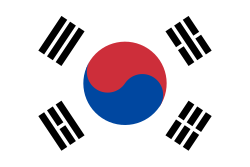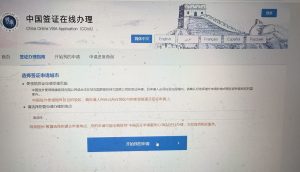Why is anti-China sentiment growing in South Korea?

Since the announcement of martial law by former conservative South Korean President Yoon Seok-yeol in early December last year, his supporters have begun to demonstrate, some of whom are targeting China, chanting “CCP OUT”. These protests continued even after progressive Lee Jae-myung was elected and took office as president on June 4 of the same year. In fact, there were sporadic anti-China demonstrations in South Korea before the martial law was issued, but the scale was only a few dozen people. Now, the anti-China demonstrations have expanded to hundreds of people, with demonstrators beating gongs and drums and marching in the streets. On July 9, the Chinese Embassy in South Korea even made representations to the South Korean side and reminded Chinese in South Korea to pay attention to safety.
Yoon Seok-yeol’s imposition of martial law was criticized by many foreign media as “anti-democratic behavior”. But his supporters did not back down, but instead turned to a stronger anti-China attitude. This is not accidental; they agree with Yoon’s position against China. In fact, Yoon has repeatedly emphasized trilateral cooperation between South Korea, the United States and Japan during his tenure, which is in stark contrast to his progressive predecessor Moon Jae-in’s “three no’s” on China (no additional THAAD deployment, no participation in the US global missile defense system, and no establishment of a South Korea-US-Japan military alliance).
Sim Jae-hong, a graduate of Coventry University in the UK who participated in the demonstration in front of the Chinese Embassy in South Korea in mid-June, told Deutsche Welle: “90% of South Korean oil tankers need to pass through the Taiwan Strait. If China unifies Taiwan by force, South Korea’s economy will be heavily dependent on China. China intends to support pro-China regimes in South Korea and Japan to ensure that South Korea and Japan will not intervene in the event of an invasion of Taiwan.”
At that time, a protester at Hanyang University in Seoul who requested anonymity also said: “South Korea needs to establish a strong alliance with the United States, Japan, Europe and NATO to defend freedom and democracy. However, the new president Lee Jae-myung prefers to ally with China, Russia and North Korea, which is why I participated in today’s march.”
Ms. Lee Nurim, a student at Jeju National University who also participated in the demonstration, believes that China is expanding its international influence around the world, including South Korea, through purchasing real estate, cultural infiltration and technological espionage: “We are not against China, but the Chinese Communist Party and its “Chinese Dream”, because it means world hegemony.”
How serious is anti-China sentiment in South Korea?
There are deep reasons for the occurrence of these protests, and it is unlikely to be quelled in the short term. How serious is the anti-China sentiment in South Korea? According to data from the South Korean media Daily Economy, only 16% of South Koreans had a negative attitude towards China in 2015; this rose to 40% in 2020. Judging from the data of other research institutions, the situation is basically the same. A poll conducted by the Institute of Asian Studies at Seoul University in South Korea in 2022 showed that the proportion of South Koreans with a negative attitude towards China reached 91%; and a similar poll conducted by the Pew Research Center in the United States in 2024 even reached 97%.
Many opinions in South Korean public opinion believe that the emergence of anti-China sentiment in South Korea is mainly attributed to China’s recent expansionist policies, among which the “THAAD incident” in 2017 (China opposed South Korea’s deployment of the US THAAD defense system) played a key catalyst role; the incident triggered China’s economic sanctions against South Korea, making many South Koreans realize for the first time that China is not only an economic partner, but also a possible sanctioner.
In addition, when then-South Korean President Moon Jae-in gave a speech at Peking University on December 15, 2017, he said that “China is a big country and South Korea is a small country”, taking a servile attitude towards China, which caused dissatisfaction among the South Korean people, especially the conservative people; this experience was undoubtedly a heavy blow to the South Korean society with strong national self-esteem. Before and after the COVID-19 pandemic, the uncivilized behavior of Chinese tourists in Jeju Island and other places in the visa-free zone, such as littering, secretly taking photos of bathhouses, and even involving criminal cases, made South Korean media scramble to report, further deepening the stereotype that “Chinese people do not abide by the rules”.
In addition to these recent events, historical disputes between South Korea and China have never stopped. From China’s “Northeast Project” to the claim of historical ownership of Goguryeo (37 BC-668 AD), to the claim that “South Korea is a vassal state”, these arguments have always become the trigger point of South Korean nationalism.
In recent years, while South Koreans have become more critical of the Chinese government, they have also shown a tendency to extreme anti-China sentiment. In 2022, Korean costumes became one of the 55 ethnic minority costumes displayed in the Beijing Winter Olympics. This was also called “cultural invasion” by South Korean media – even though the same display did not cause any reaction in the Beijing Summer Olympics held when Hu Jintao was in power in 2008. In addition, there are images of Korean girls on the 20-cent banknotes from the second set of RMB in 1955 to the fourth set of RMB in 1988, but the South Korean side has never protested against this.
In fact, the Korean ethnic group is the last group of Chinese ethnic minorities to settle in China. The Korean ethnic group is mainly distributed in the Northeast region. Many people worked there during the Manchukuo period. After the end of World War II, they chose to stay in the Northeast instead of returning to the Korean Peninsula. Therefore, their assimilation into the Han Chinese is relatively low. Most Koreans can speak fluent Korean and maintain Korean eating habits and clothing culture. South Koreans are not unaware of this fact, but the collective psychology of “Sinophobia” that has spread in recent years has prevented South Koreans from objectively viewing the display of Korean costumes at the opening ceremony of the Beijing Winter Olympics.
South Korea’s “cultural cleanliness”
Some people believe that behind this phenomenon is the old-fashioned cultural cleanliness tendency in South Korean society. Any cultural signal related to China may be regarded as a “symbol of hegemony” rather than a neutral national expression. Even the translation of “kimchi” (Korean kimchi) has become a focus of controversy-South Korea requires that “kimchi” be changed to “xinqi” because “kimchi” is a traditional Chinese side dish, intending to decouple from China in terms of language.
In fact, South Koreans find it difficult to accept any questioning of the “kimchi” culture that they regard as sacred. When “kimchi” became popular in Japan more than 20 years ago, South Korea also raised similar protests. According to Korean media, South Koreans once expressed dissatisfaction with the Japanese registering kimchi as “kimuchi” and questioned why the original word “kimchi” was not used. However, this is actually based on the limitations of the Japanese pronunciation system-Japanese cannot accurately pronounce the “m” sound. Unfortunately, South Korean society at that time did not seem to fully consider this objective linguistic difference.
As the above examples show, historically, South Korea had similar cultural cleanliness to Japan, but gradually reconciled due to frequent exchanges. On the other hand, due to China’s own closedness and toughness, there is a lack of communication space between South Korea and China, which has led to increasing resentment.
In recent years, this phenomenon has not only affected mainland Chinese tourists visiting South Korea, but some Hong Kong and Taiwan tourists have also felt the “heat” of South Korea’s anti-China sentiment. According to a Hong Kong tourist who revealed to Deutsche Welle, when she spoke Cantonese on the streets of Seoul, some South Koreans treated her with inappropriate remarks such as “Chinese people should leave immediately.” In addition, a Taiwanese media reporter told Deutsche Welle that when she was dining in a restaurant in Myeongdong, Seoul and speaking Taiwanese Mandarin, she felt “extremely hostile stares” from the South Koreans around her.
This phenomenon of cultural nationalism in South Korea is also reflected in the data. According to the ranking of the world’s most racist countries released by U.S. News & World Report in 2023, South Korea ranks ninth among 79 countries. South Korean media have also reported that Chinese, Koreans and Southeast Asian workers in South Korea are often treated unfairly.
Racial discrimination can be traced back to Korea’s traditional lack of a broad worldview. According to the Journal van de Ongeluckige Voyagie van’t Jacht de Sperwer, published in 1667 by Hendrick Hamel, an employee of the Dutch East India Company, he was shipwrecked on his way to Nagasaki, Japan, and stayed in Korea for 13 years after drifting to Jeju Island. He explained in the book: “At that time, Koreans believed that there were only 12 countries in the world, and once you enter Korea, you cannot leave.”
Will this situation change in the future? In terms of people-to-people exchanges, the South Korean and Chinese governments are actively expanding exchanges; since November last year, China has begun to provide South Korean travelers with 30 days of visa-free treatment, and South Korea will also implement a visa-free policy for all Chinese group tourists in September this year. However, at the diplomatic level, uncertainty still exists; as the Trump administration and Xi Jinping’s competition for hegemony in East Asia intensifies, and South Korea’s new Lee Jae-myung government responds, the future development of anti-China sentiment in South Korea is still full of uncertainties.
![]()







